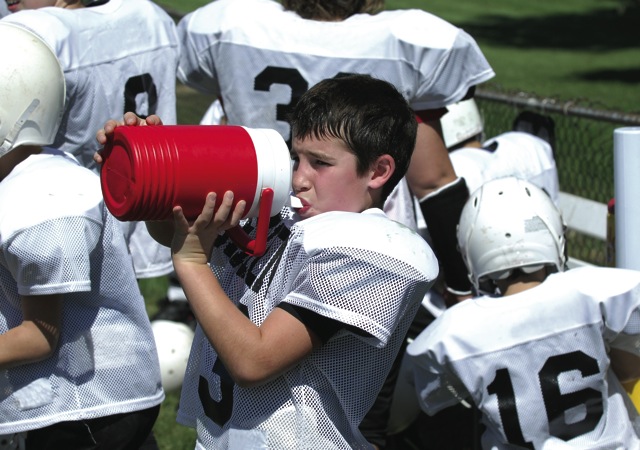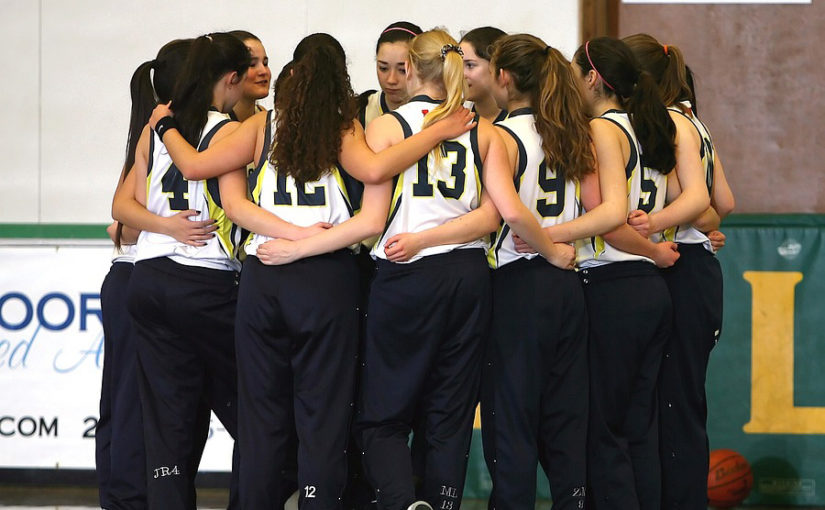The telltale signs of heat-related illness in student-athletes
With summer right around the corner, it’s important to keep in mind the signs of heat-related illness in your student-athletes.Each year, an estimated 240 people die from heat-related illnesses, and heat stroke is the third-ranked cause of death for young U.S. high school athletes, according to Nationwide Children’s Hospital.
 A recent story from Medical Xpress detailed the signs of heat-related illness and ways to prevent that from occurring. Below is an excerpt from the Medical Xpress story.
A recent story from Medical Xpress detailed the signs of heat-related illness and ways to prevent that from occurring. Below is an excerpt from the Medical Xpress story.
There are telltale signs on the playing field (or anywhere) that someone may be overcome by the heat. Various types of heat illness include:
- Heat cramps. As too much sweating causes salt and water to leave the body, this can cause severe cramping in the limbs and abdomen.
- Heat syncope. Syncope is the medical term for fainting, which can be preceded by weakness and fatigue.
- Heat exhaustion. This could manifest in cool, pale skin and the onset of headache, nausea, chills, weakness, unsteadiness, dizziness, rapid pulse, excessive thirst, and muscle cramps.
- Heat stroke. This is always an emergency. Signs of heat stroke include slurred or incoherent speech, looking disoriented, rapid/irregular pulse, seizures, unconsciousness, and even coma. As heat stroke sets in, the body’s heat-control mechanism begins to fail, and that can lead to organ failure.
- Treatment: Take these measures immediately when heat illness strikes:
- Cool the victim. Move the affected person to the shade or an air-conditioned space, remove any sweat-saturated clothing, and apply ice, water, cold towels, etc to their body.
- Replace fluids. If the victim can drink water, make sure they do, and if not IV fluids should be delivered by medical professionals.
It’s best for everyone if heat never has a chance to severely affect a young athlete in the first place. Some tips for athletes, parents, and coaches generally:
» ALSO SEE: OSAA defends gender policy regarding trans student-athletes
- Hydration is key: Teach kids to pay attention to their bodies and their own thirst, and to “drink to thirst”—that is, drink enough water so that the thirst recedes. Rehydrate between sports events/practices.
- Salt balance. The body loses salt during heat and exertion, so this is one point in life where generously salting your food is maybe healthy, the Nationwide Children’s experts said. Revert to a lower-salt diet once the heat and exertion are no longer a factor. Eating a healthy, well-balanced diet also helps young athletes better deal with heat stress.
- Acclimatize. As the hot weather arrives, don’t suddenly go all out on a 100-degree day. Instead, slowly build up a tolerance to heat over about two weeks to help your body acclimatize, the experts said.
- Medications. Be sure to check your child’s medications with your pediatricians, to be sure they won’t make them more sensitive to heat.
To read the full story from Medical Xpress, click here.







